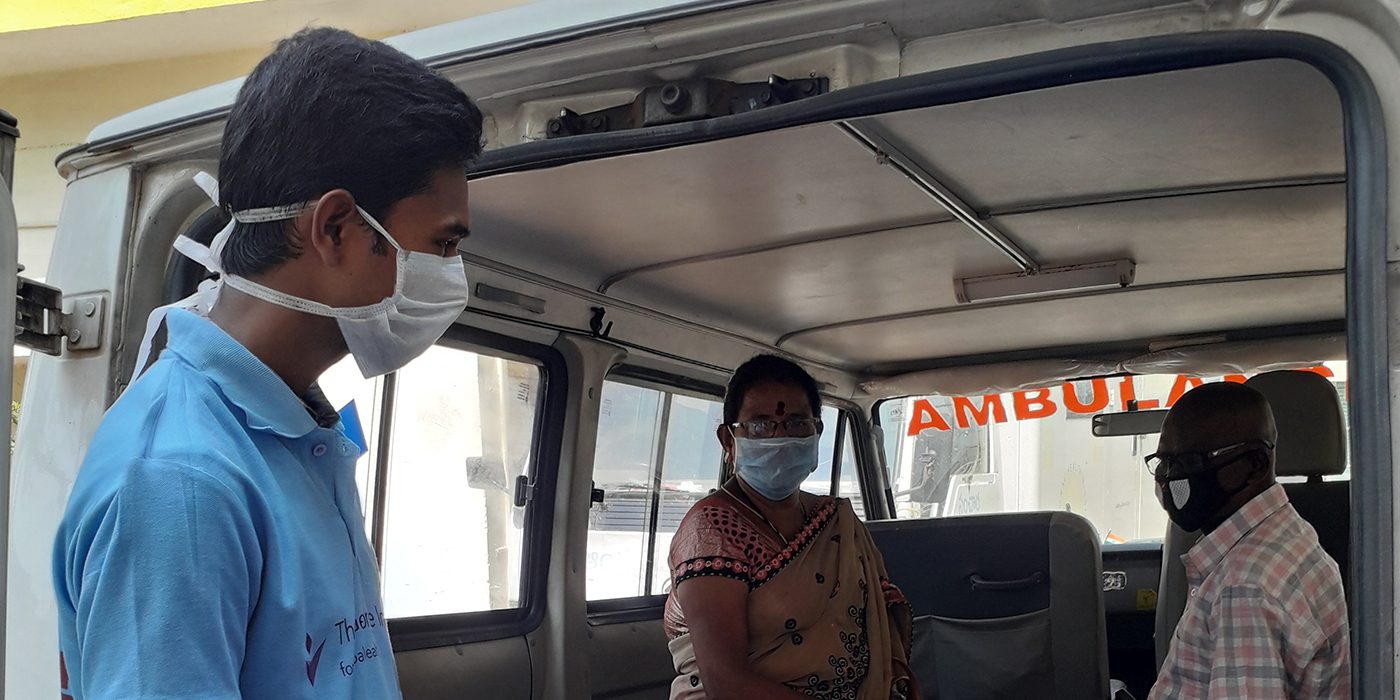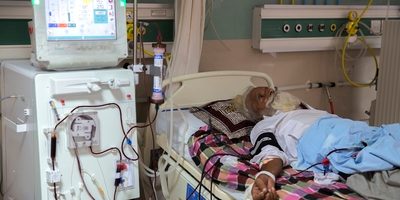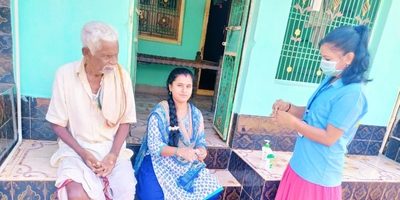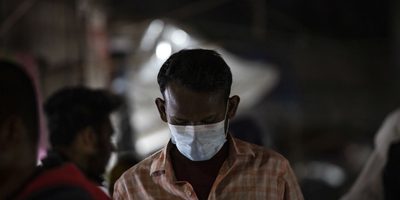
Continuing dialysis in the face of the COVID-19 lockdown
Senior Project Manager with The George Institute India Balaji Gummidi describes the joint efforts of the STOP CKDu team to ensure dialysis patients in Andhra Pradesh continue to receive their life-saving treatment during the COVID-19 lockdown.
Like the rest of India, the people of Andhra Pradesh are in a complete lockdown for 21 days to fight the coronavirus pandemic. This lockdown presents a number of challenges to patients who need to undergo regular dialysis. On the very second day of the lockdown, dialysis patients in Srikakulam district were in for a shock – they were under strict orders not to leave their homes and also had no means of transport to reach their respective centres.
As dialysis is a life-saver and is needed to stay healthy and alive, the affected people realised it cannot be postponed. They cannot stay in lockdown or be quarantined effectively and needed to visit the dialysis centres for a four-hour session at least two to three times a week. These included people who live far from the centres and therefore need to have some means of transport to reach dialysis units. Not having dialysis meant certain death and so, staying at home for fear of getting coronavirus was not an option.
Immediately, what came to their mind is the helpline number of the Kidney Research Innovation and Patient Assistance Centre (KRIPA), which the Andhra Pradesh Government established with technical support from The George Institute India at Palasa, Srikakulam District. On the morning of the second day of the lockdown, staff at the KRIPA centre started getting questions from patients on the helpline number regarding the need to continue their dialysis sessions and how they could reach the centre.
Ramana Rao, a 48-year resident of Akkupalli village, used the hotline to say that dialysis was scheduled for him on that day and he was not able to find transport to reach the centre at RIMS Srikakulam. K Aruna, a 35-year-old mother of two from Gollamakaranapalli village, was desperate to attend her dialysis session at Palasa community health centre but did not know what to do.
A total of 369 patients are registered at these centres and under the Andhra Pradesh Government’s YSR Arogyosri scheme dialysis is being provided free of cost. There are three dialysis units in the region that conduct around 230 sessions per day. The STOP CKDu project team at The George Institute India has been with working in these villages for the last year and a half, conducting awareness activities and research to understand the burden of kidney disease in the area. All team members knew how important it was that something was done quickly.
Both staff and patients understood that skipping dialysis can lead to serious adverse effects. Nevertheless, with the strict travel restrictions in place and closure of public and private transport, they were at a loss to understand how to get to the dialysis centres. They had already heard that six patients had missed their sessions.
STOP CKDu team members swung into action – they knew that there are two referral vans and one mini ambulance for all four community health centres in the region. The district health authorities were contacted and with direct orders from the district collector of Srikakulam, the vehicles were commissioned to transport these desperate patients to the dialysis centres.
The team ensured that the vehicles were fully sanitised, and the driver was trained to follow safety measures. Led by K Tirupathi, counsellor of KRIPA centre, the STOP CKDu team is monitoring the logistics and scheduling the pick-up and drop off of people in need of getting this life-saving treatment. Around 30 to 35 patients are utilising these services daily.
It is turning out to be a life-saving intervention for these people.






